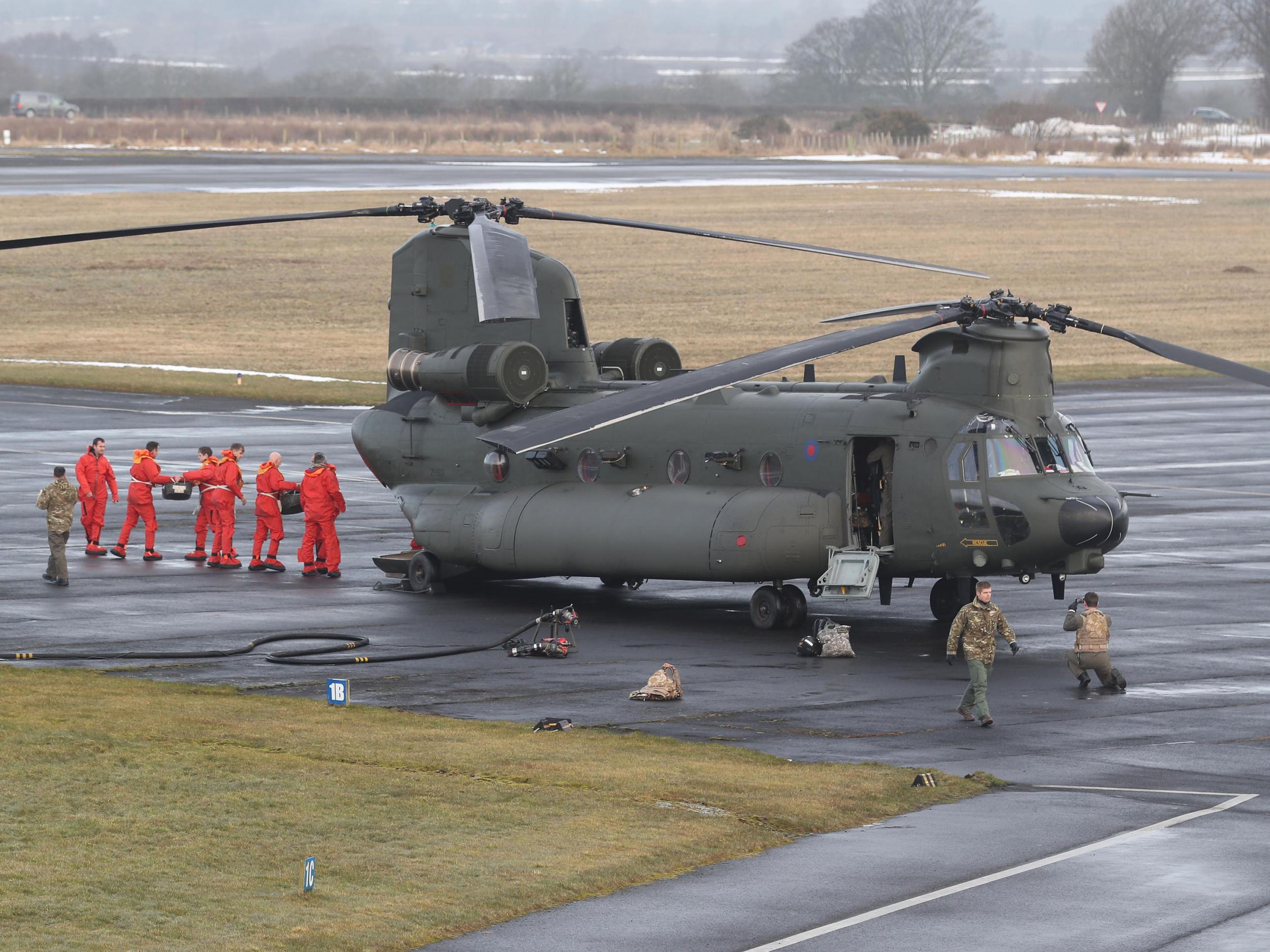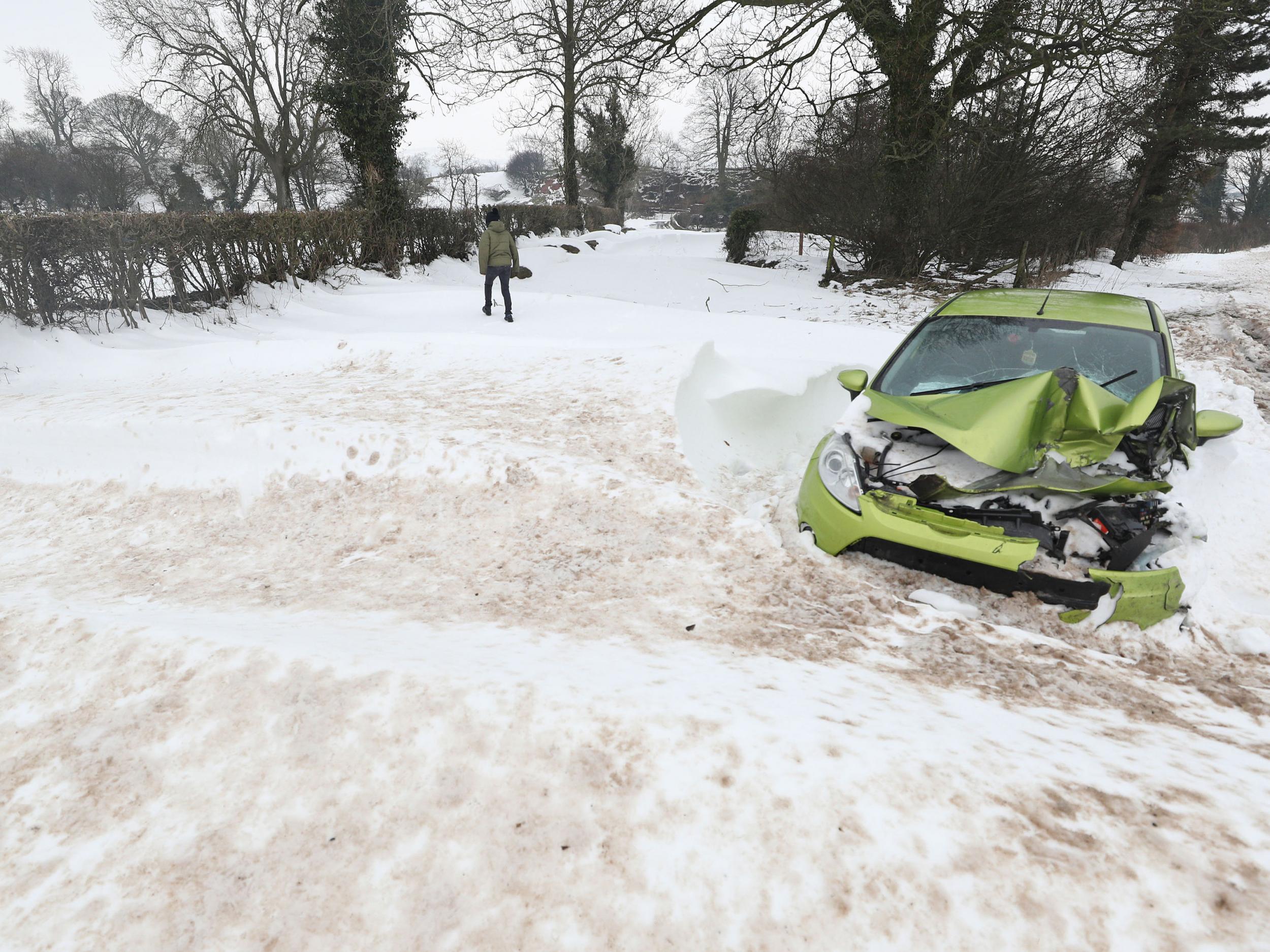RAF Chinook helicopter scrambled to take supplies to 'extremely isolated' parts of Cumbria battered by weather
Communities cut off for five days to have food, coal, logs and electrical heating appliances flown in

Your support helps us to tell the story
From reproductive rights to climate change to Big Tech, The Independent is on the ground when the story is developing. Whether it's investigating the financials of Elon Musk's pro-Trump PAC or producing our latest documentary, 'The A Word', which shines a light on the American women fighting for reproductive rights, we know how important it is to parse out the facts from the messaging.
At such a critical moment in US history, we need reporters on the ground. Your donation allows us to keep sending journalists to speak to both sides of the story.
The Independent is trusted by Americans across the entire political spectrum. And unlike many other quality news outlets, we choose not to lock Americans out of our reporting and analysis with paywalls. We believe quality journalism should be available to everyone, paid for by those who can afford it.
Your support makes all the difference.The Royal Air Force (RAF) has scrambled to fly emergency supplies into “extremely isolated” parts of Cumbria that have been cut off by huge snow drifts.
A Chinook helicopter will transport food, coal, logs and electrical heating appliances to communities in Fellside, South Stainmore and Alston, Cumbria County Council said.
Following heavy snowfall, roads into the areas had been closed for five days by Monday and they were expected to remain so for another 48 hours.
“We have some communities who have now been stranded for five days and we have to do all we can to ensure that they are safe and well," said Cumbria County Council's leader, Stewart Young.
“Despite our very best efforts and our crews working day and night we are experiencing ongoing significant challenges in accessing some of our communities. The depth of snow and the challenging nature of the terrain is making progress on clearing roads exceptionally slow.
He added: “As a result it is estimated that it will be at least 48 hours before we reach many more of these communities hence the need to bring in military assistance and we are very grateful for their help.”
Temperatures rose above freezing over the weekend after the so-called “Beast from the East” and Storm Emma brought bitterly cold weather to the UK last week, but the repercussions were still being felt across the country.
Thousands of households across London and the southeast were left without running water over the weekend and schools announced closures due to burst water pipes.
A flood warning was put in place by for parts of Halesworth in Suffolk, with rainfall and melting snow causing danger.
Dozens of alerts telling people to be prepared for the possibility of flooding were also issued, largely concentrated in the west of England and Wales.

A yellow weather warning for ice issued by the Met Office was in place for areas including Cumbria until Monday morning.
“Icy stretches will continue to be likely on untreated roads, pavements and cycle paths. In addition, some hill snow is likely at times mainly over the Pennines, although amounts are expected to be small," it said.
“Driving conditions may become difficult and there is an increased chance of injuries from slips and falls on icy surfaces.”
The military last week stepped in to help with the extreme weather by using its vehicles to transport NHS staff to hospitals.
It also assisted the police in helping drivers stranded in their vehicles on the motorway.
Wing Commander Gary Lane, RAF Regional Liaison Officer for the North West, said: “The Chinook helicopter gives the partnership another dimension to be able to deliver vital supplies by air to areas that are cut off by other means.”
There are three battalions “at high readiness” to respond to emergencies in the UK. A statement from the Ministry of Defence issued last Friday said: ”We have the right people with the right training to respond to a range of contingencies,”
Press Association contributed to this report
Join our commenting forum
Join thought-provoking conversations, follow other Independent readers and see their replies
Comments